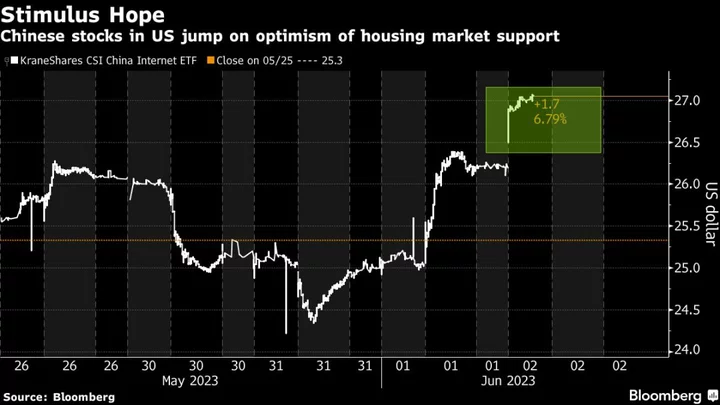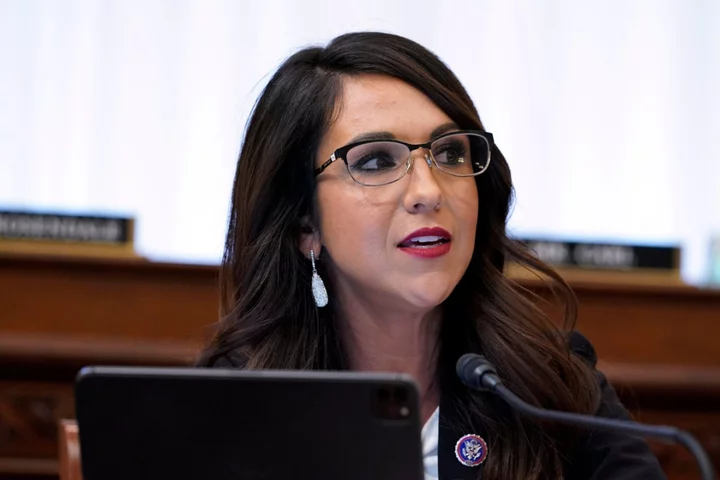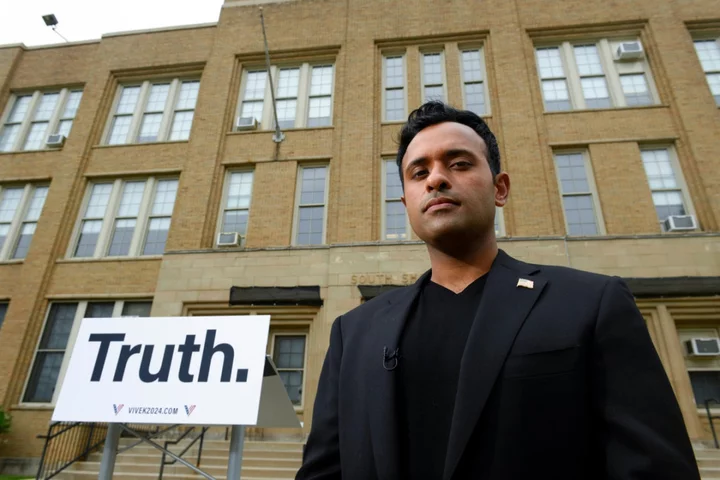
Experts advise on how to stay safe while swimming in open water
Each year, rising temperatures and longer days in summer encourage Britons to seek out bodies of water to cool off and have fun in. Swimming, paddleboarding and other water-based activities can provide a wholesome day for families and friends, whether that’s in lakes, rivers, or at the seaside. However, there are a number of safety measures individuals should remember when taking part in these. It comes after several people had drowned in rivers, lakes and in the sea in recent weeks, with four deaths occurring over the Spring Bank Holiday weekend alone. The incidents have prompted warnings from police reminding people to be “vigilant to the dangers of the coast and follow water safety advice”. The Royal Life Saving Society UK (RLSS UK) has also issued a safety warning for people planning to be around open water, regardless of whether you consider yourself a strong swimmer. Lee Heard, charity director at RLSS UK, said: “Sadly we see an increase in young men drowning in the summer months and we have tragically seen a number in the past few weeks during the warmer weather we have had. We don’t want to see any more families experience the devastating and sudden loss from drowning.” He added: “We urge people to consider what could happen, understand that the water is colder than it looks, and not take risks if they are not experienced with being in cold, open water. “Whether you are heading to the coast for the bank holiday weekend or even just planning a walk along a river, please ensure that you take precautions to ensure the safety of yourself of those you are with. We want everyone to enjoy the bank holiday but to so with water safety in mind.” When swimming in open water, people should consider the risks involved before jumping in, particularly because bodies of water can be much colder than people realise. Getting straight into very cold water can lead to cold water shock. According to the National Water Safety Forum, this is the body’s short-term, involuntary response to being suddenly immersed in cold water, and is considered to be a principal underlying factor in drowning. When a person gets into cold water very suddenly, the blood vessels in the skin close, which results in increased resistance to blood flow. The heart has to work harder to pump blood around the body, which leads to increased blood pressure. At the same time, the body experienced a “gasp” response as well as a dramatic change in the breathing rate. The person will be unable to keep their breath steady for a while after they first get into the cold water. “The effect of these can lead to a sense of panic, inhalation of water, leading in some circumstance to a cardiac arrest,” the forum says. Cold water shock can be managed by wearing a well-fitting wetsuit and entering the water slowly. However, if a person has had an accidental fall into cold water without a wetsuit, the forum recommends using a technique called “float-first”, which involves tucking your legs and floating on your back, focusing on staying tucked and controlling your breathing until you feel you can self-rescue or be helped by others. When planning to go swimming in open water, people should check if the area is lifeguarded, has a safe-swim zone or is under any kind of supervision. A list of designated bathing waters in the UK, provided by the Environment Agency, also name many sites that are not supervised. In the instance that the water you are entering is not supervised, the forum recommends asking yourself if you have the right knowledge and experience to establish if conditions are suitable. It warns people to be particularly cautious in quarries and reservoirs, which can be “deceptively deep and cold throughout the year”, as well as in rivers with weirs and fast-flowing water, and potentially polluted locations. Heard adds: “If you or someone else finds themselves in difficulty in the water, it’s vital to remember the Water Safety Code: whenever you are around water you should stop and think to assess your surroundings and look for any dangers; stay together when around water and always go with family and friends; in an emergency call 999 and ask for the Fire and Rescue service when inland and the Coastguard if at the coast. “Finally, float to live, if you fall in or become tired, stay calm, float on your back and call for help, or if you see someone in the water, throw something that floats to them and resist temptation to go in.” Read More Mother’s warning after viral TikTok hack left skin peeling from her face How one hay fever medication helped my fight against the pollen bomb Dermatologist horrifies viewers by discussing mites that live in your skin How one hay fever medication helped my fight against the pollen bomb FDA warns against using off-brand versions of Ozempic, Wegovy for weight loss The £4 hay fever tablet that ‘cures all symptoms’
1970-01-01 08:00

What’s Trending Today: National Donut Day, Spelling Bee Champion, Debt Deal, Twitter Exec Resigns
Welcome to Social Buzz, a daily column looking at what’s trending on social media platforms. I’m Caitlin Fichtel,
1970-01-01 08:00

Chinese Stocks in US Rally on Sign That Policy Support May Come
US-listed Chinese stocks jumped in premarket trading after Bloomberg News reported that regulators are considering new measures to
1970-01-01 08:00

Happy Pride! Sam Smith releases cover of Christina Aguilera's Beautiful
Sam Smith shared how the empowering anthem inspired them to be their true self.
1970-01-01 08:00

Netflix, Disney, Amazon to challenge India's tobacco rules for streaming-sources
By Aditya Kalra and Munsif Vengattil NEW DELHI Streaming giants Netflix, Amazon and Disney on Friday privately discussed
1970-01-01 08:00

Poland’s Leader Rows Back on Controversial Law After Rebuke
Poland’s leader proposed measures to soften parts of a controversial law that drew swift criticism from the US
1970-01-01 08:00

Lauren Boebert didn’t turn up to vote on debt ceiling deal she furiously campaigned against
MAGA firebrand Lauren Boebert emerged as one of the fiercest critics to the debt ceiling deal brokered by House leader Kevin McCarthy and President Joe Biden to avoid a catastrophic default. But when it was time for the House of Representatives to cast their votes on Wednesday night, she failed to show up. Ms Boebert was mocked on social media after she reportedly “narrowly missed the vote, running up the steps right as they gaveled”, according to Axios Capitol Hill reporter Juliegrace Brufke. Spencer Soicher, a reporter from Ms Boebert’s home state of Colorado, pointed out that she had made 23 Twitter posts in the past week voicing her displeasure with the compromise deal. Democrat Adam Frisch, who in 2022 lost his bid to unseat Ms Boebert in Colorado’s third district by just 546 votes, wrote on Twitter: “How can you represent #CO03 when you don’t even show up? What was more important than voting?” Jon Cooper, who chairs The Democratic Coalition, tweeted: “Lauren Boebert was a vocal opponent of the bipartisan debt ceiling bill — but she ended up MISSING tonight's vote entirely. Is anyone surprised?” Ms Boebert had earlier vowed to vote against the debt ceiling deal, saying on Tuesday that the bill was a “bunch of fake news and fake talking points” that did nothing to rein in federal spending. “If every Republican voted the way that they campaigned, they would vote against tomorrow's bad deal.” The House voted overwhelmingly by 314 to 117 to raise the debt limit, after Republicans were given concessions to cut IRS funding and increase work requirements on social spending programmes. A total of 71 Republicans voted against the deal, along with 46 Democrats, avoiding an apocalyptic scenario where the US would default on its debts. The bill now heads to the Senate, where a vote is expected to be held by Friday. Read More Debt ceiling news - live: Senate races to pass Biden-McCarthy deal as Boebert mocked for missing House vote What’s next for Biden-McCarthy debt ceiling deal as Senate races to beat default deadline? White House rejects Lauren Boebert’s claim that antisemitism plan will be used ‘go after conservatives’ Boebert didn’t turn up to vote on debt ceiling deal she furiously campaigned against Lauren Boebert claims Biden plan to combat antisemitism will target ‘conservatives’ Lauren Boebert intervened in son’s alleged 911 abuse call, report says
1970-01-01 08:00

Vivek Ramaswamy to call for end to US support for Ukraine and Nato exit from Eastern Europe
Vivek Ramaswamy, the biotech entrepreneur and anti-woke asset manager turned Republican presidential hopeful, has a plan for ending Russia's year-and-a-half war on Ukraine – sort of. The 38-year-old political newcomer will unveil what he describes as a plan to bring the brutal conflict to a close by halting American support for Kyiv and "negotiating a peace treaty with Russia that achieves a vital US security objective: ceasing Russia's growing military alliance with China". In remarks to be delivered on Friday in New Hampshire to the Belknap County GOP Lincoln Day, Mr Ramaswamy will say his plan is the mirror-image approach of the late US president Richard Nixon's effort to break up the Soviet Union's alliance with the People's Republic of China, citing what he describes as Russian President Vladimir Putin's status as "the new Mao". The Independent obtained a copy of his speech ahead of Friday's event. It cites a two-decade-old treaty between Russia and the PRC, as well as the "no limits" partnership unveiled by Mr Putin and Chinese leader Xi Jinping as evidence that a Sino-Russian alliance "presents the greatest military risk the US has ever faced" and accuses President Joe Biden of "pushing Russia into a closer military alliance with China which increases the risk of nuclear war" through his quarterbacking of US and Western support for Ukraine's defence. While Mr Ramaswamy's prepared remarks call his solution to the conflict a "peace treaty," what he lays out does not appear to meet the definition of the term. Peace treaties, by and large, represent final settlements to armed conflicts. Famous examples include the Treaty of Versailles, which ended the First World War, and the 1951 Treaty of San Francisco that formally brought an end to the Second World War. What he instead proposes is an analogue to United Nations-enforced armistice that has been in force on the Korean Peninsula since 1953. Under the terms of his plan, Kyiv would legitimise Russia's occupation of Ukraine's Donbas region by ceding it to Russia. The US and the West would end all sanctions on Russia, cease defence assistance to Ukraine, and Nato would prohibit Ukraine from ever becoming a member of the 31-nation defensive pact. The alliance would also roll back troop deployments that have taken place on its eastern frontier since 2016 – including closing all bases on Nato territory in Eastern Europe. In return, he proposes that Russia would exit its 2001 treaty with China, end the "no limits" partnership while ceasing any military cooperation with Beijing, rejoin the New START arms control treaty, withdraw any forces deployed in Latin America and remove "all nuclear weapons and delivery capabilities" from Belarus, any Ukrainian territory it has annexed, as well as the Baltic Sea exclave of Kaliningrad, which is Russia's only ice-free port for its Baltic Fleet. His prepared remarks do not offer any evidence that Russia would be willing to cease cooperation with China or give up its military presence in Kaliningrad, which has housed a major naval base since the Soviet era. Nor does he provide any evidence to support his claim that Moscow would be willing to cut off decades of warm relations with Beijing in return for an end to Western sanctions, particularly since the Sino-Russian relationship has existed since the dawn of the 21st century. Despite multiple credible reports from US officials and other Western governments which say Kyiv's defence forces have dealt a major blow to Russia's conventional warfare capability, he plans to say that he believes Ukraine "will not defeat Russia militarily" without "extraordinary intervention" on the part of the United States, which he claims would lessen America's ability to respond to a Chinese attack on Taiwan. "Under my peace plan, Ukraine will still emerge with its sovereignty intact and Russia permanently diminished as a foe. Ukraine's best path to preserving its own security is to accept a US-negotiated agreement backstopped by Russian commitments to the US," he will say. The rollout of his plan for the Ukraine conflict represents the political neophyte's first foray into foreign policy waters since he launched his presidential campaign earlier this year. His opposition to continuing US defence assistance to Kyiv is in line with much of the pro-Trump wing of the GOP, which tends to view Russia far more favourably than the general US population. In a press release, the Democratic National Committee condemned the plan as "siding against our ally as Vladimir Putin wages an unjust and violent war in Ukraine" and derided Mr Ramaswamy as a "MAGA Republican presidential hopeful". "Vivek Ramaswamy is promising to end America's support of Ukraine – posing a threat to our allies on the ground and democracy itself," the DNC said. The DNC also pointed out that Mr Ramaswamy's position syncs up with much of the GOP presidential field, including the two highest-polling candidates: Mr Trump and Florida Governor Ron DeSantis. Mr Trump, who has long professed an affinity for Mr Putin and has described him in positive terms despite his having ordered an unprovoked invasion of another country, praised the war crime-laden invasion as "savvy" and "genius" just days after Russian tanks crossed over the Ukrainian border. Mr DeSantis, who is a distant runner-up to Mr Trump in most polls of the GOP primary electorate, downplayed war – the largest land-based conflict on the European continent since 1945 – as a "territorial dispute" and a flight over "borderlands". But James Stavridis, a retired four-star US Navy admiral who served as Nato's Supreme Allied Commander, Europe from 2009 to 2013, was far more generous in his reaction to the plan. Mr Stavridis told The Independent in an email that he is "all for creative ideas in international diplomacy" and said he "would love to be able to say that there is a chance of this type of settlement occurring". But he added that he could not say there would be such a chance. For one, the former Nato commander said Mr Putin is "so deeply invested in the relationship with China" that there is "zero chance" he'd abandon his partnership with Mr Xi. He added that in his estimation, Russia would "never" agree to give up Kaliningrad as a base for nuclear-capable forces, and said there is also no chance that Kyiv would agree to cede approximately 20 per cent of its territory to Moscow. "Nor do I think that the west would be willing to completely walk away from Ukraine and deny providing them appropriate security guarantees, or even membership in NATO. The red lines for both sides are significant," he said. But Mr Stavridis did say he believes a "Korean-style armistice" is the most likely outcome of the 14-month-old conflict, with the caveat that "it's too soon to know where those boundary lines might be or where the trade-offs could occur". "Our job in the west is obvious, which is to give the Ukrainians everything they need in terms of material and training, so they can be at the best position when the negotiations ultimately begin," he said, adding later that "one thing [he knows] for sure" is that the Ukraine war presents "deeply complex issues with enormous, competing equities on all sides," with the chances of a simple settlement "within 24 hours" as Mr Trump suggested at a recent CNN town hall "approach[ing] negative infinity". While the ex-Navy admiral was measured in his evaluation of Mr Ramaswamy’s plan, a prominent GOP foreign policy veteran was far less generous when asked to opine on his proposal. Senator Lindsey Graham, a longtime member of the upper’s chamber’s foreign relations committee, told The Independent on Thursday that the anti-woke businessman’s plan amounted to “rewarding aggression” and called him “somebody who really doesn’t understand how the world works”. He added that rewarding Mr Putin for his aggression would result in China feeling empowered to take Taiwan. “You know, I’m glad people don’t think that way when it came to our freedom,” he said. “Go study history and give me an example where aggression was rewarded where you got less of it”. Senior Washington Correspondent Eric Garcia contributed reporting from Capitol Hill Read More Trump's welcome of Scott into 2024 race shows his calculus: The more GOP rivals, the better for him Zelensky salutes ‘powerful support’ from allies at Moldova summit – as he increases pressure over jets A six-year-old Ukrainian girl saved by adoption or a murderous adult imposter: Who really is Natalia Grace? The Body in the Woods | An Independent TV Original Documentary The harrowing discovery at centre of The Independent’s new documentary
1970-01-01 08:00

Roundup: Zendaya, Tom Holland Returning for 'Spider-Man 4'; Nuggets Win Game 1; SEC Sticking to Eight-Game Schedule
Zendaya, Tom Holland will be back for "Spider-Man 4", the Nuggets won Game 1 of the NBA Finals, the SEC will keep eight-game schedule and more in the Roundup.
1970-01-01 08:00

Belgorod: Shelling in Russian border region kills two, governor says
Two women were killed by shrapnel as they travelled in a car, officials say.
1970-01-01 08:00

NBA Commissioner Adam Silver says outcome of Ja Morant investigation to be announced after Finals conclude
NBA Commissioner Adam Silver said that the league has "uncovered a fair amount of additional information" in relation to Memphis Grizzlies star Ja Morant and a video which surfaced on social media in May appearing to show him flashing a gun while in a vehicle with others.
1970-01-01 08:00

Pride Planners: How We’ll Celebrate Despite Anti-Drag, Anti-LGBTQ Laws
In state legislatures across the US, lawmakers have introduced a record number of anti-LGBTQ bills this year, including
1970-01-01 08:00
